Moving to Brighton, England, can be thrilling, offering a fantastic mix of city life and a coastal atmosphere.
As you plan your move, it's crucial to familiarise yourself with essential aspects of living in Brighton, such as the cost of living, safety, and finding the most popular neighbourhoods.
Known for its lively culture and friendly community, Brighton boasts a variety of independent shops, restaurants, and entertainment venues.
It's also considered a safe city, with areas like Hanover, Kemp Town, and Seven Dials offering strong community atmospheres and active social scenes.
City areas like Regency, St Peter’s & North Laine can feel less safe late at night. Overall, Brighton remains a popular location for students, families, and young professionals alike.

Secure Peace of Mind with Best-Value International Health Coverage
International Citizens Insurance provide free, no-obligation quotes from the leading international health insurance providers with plans tailored to meet your needs. Trusted by thousands of expats worldwide.
5 Tips for your move to Brighton
Moving to Brighton could well be a very exciting chapter in your life. Here are five tips to get your planning underway.
- Research costs: Brighton is a popular destination, so it can be pretty expensive. Before you move, research the cost of living in the city, including housing, transportation, and food.
- Transportation: Brighton is a walkable city with an excellent public transportation system. Look into bus and train routes to see which areas are going to be most convenient for you.
- Location research: Brighton has 21 wards (neighbourhoods), each with its own unique vibe. Research the different areas to find ones that meet your lifestyle and budget needs.
- Weather preparation: Brighton is known for having mild weather but can still be unpredictable, and winters feel cold. Make sure to pack the right clothes!
- Community: Brighton has a thriving arts and culture scene and a strong LGBTQ+ community. Look for local events and groups to get involved in and meet new people.
Brighton Railway Station (The Hub)
Brighton Railway Station provides excellent connections to London, Southampton, and Gatwick Airport and other destinations across the UK.
The Railway Station is a crucial hub for this well-connected city and makes settling into your new life in Brighton much easier, as access to other cities and travelling abroad are all very convenient.
Opening a bank account
If you're coming from another country, you're going to need to open a bank account. The UK isn't quite a cashless society yet, but having a bank account and a debit card is pretty well essential.
Many banks offer easy account opening processes but remember that you will be required to provide documentation such as proof of address and identification.
Getting all the required documentation to open a bank account can be tricky. Some banks are more flexible than others. Neobanks like Revolut can be more practical for newcomers.
Choosing the right area
Moving to Brighton requires thoughtful consideration of the areas that are most likely to work for you.
Factors such as your lifestyle, budget, and housing preferences will all influence your choice of location.
This guide will explore some of the best areas to live in Brighton to help you decide which place would be the perfect fit for you.
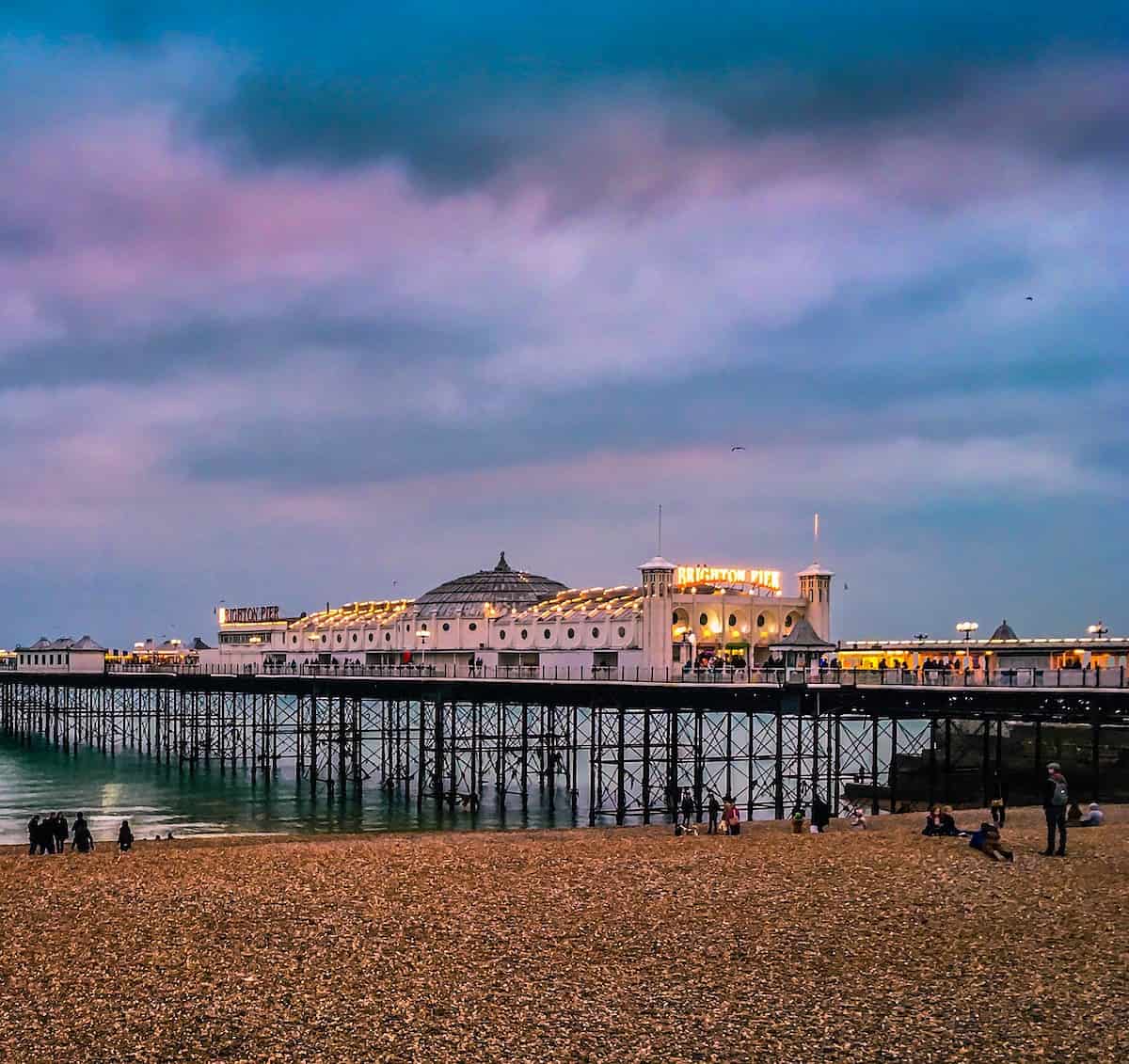
Best areas to live in Brighton
With Brighton's diverse range of neighbourhoods, you're sure to find something that caters to your needs. Here are some of the top areas to consider:
- Hanover: A popular area for families and young professionals, Hanover boasts a vibrant community and colourful terraced houses. Its hilly terrain offers stunning views over Brighton, while its proximity to the city centre ensures convenient access to amenities and nightlife.
- Seven Dials: Just a short walk from Brighton's main train station, named the "coolest" area in UK Seven Dials is an ideal location for commuters. Known for its village-like atmosphere and elegant Victorian architecture, this area is perfect for those who desire the charm of a small-town community while staying close to the city centre.
- Preston Park: If you're looking for green spaces, Preston Park is the place to be. Home to Brighton's largest park, this neighbourhood provides a serene escape from the bustling city centre. The area also has a good mix of housing options, making it suitable for both families and professionals.
- Kemp Town: If it's a lively atmosphere and seaside living you're after, take a look at Kemp Town. With an array of cafes, bars, and restaurants, this vibrant neighbourhood is popular among young professionals and the LGBTQ+ community. Its historic charm and proximity to Brighton's iconic seafront make Kemp Town a sought-after location.
- Hove Park: For those desiring a quieter, more family-friendly neighbourhood, Hove Park is the perfect choice. This area is located west of Brighton's city centre and features spacious properties and excellent schools. Hove Park itself is a popular destination for leisure activities, offering plenty of outdoor space for sports and relaxation.
Now that you're familiar with some of the best areas to live in Brighton, consider your priorities and preferences while keeping your budget in mind to help you choose the right location for your new home.
Brighton's various communities cater to a range of lifestyles and offer a unique experience that makes living in this coastal city truly unique.
Types of homes available
When moving to Brighton, you will encounter a variety of property types with distinctive architectural styles. The city is known for its Regency, Victorian, and Edwardian buildings, each offering unique living experiences.
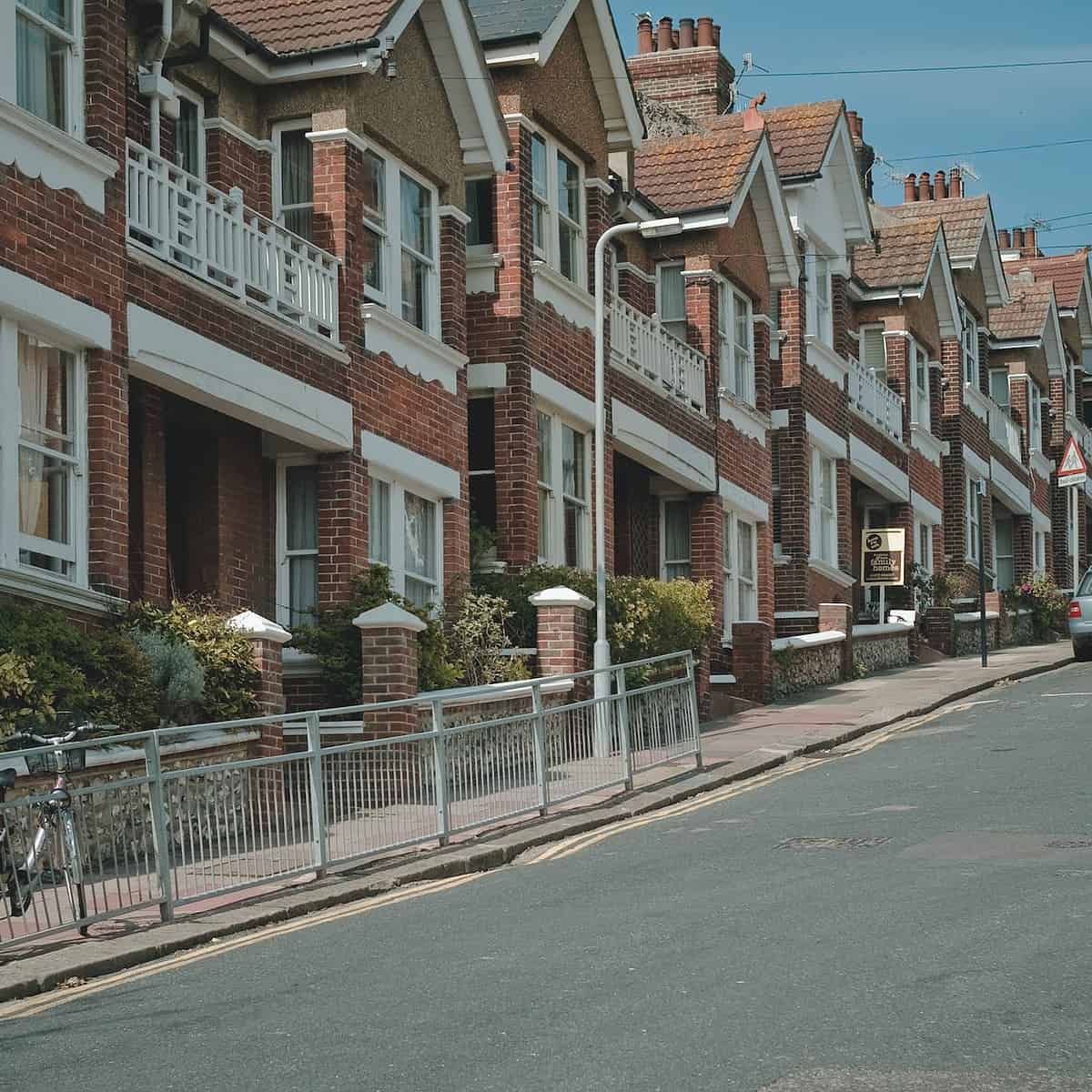
Regency buildings are an integral part of Brighton's architecture. These elegant structures are prominent along the seafront, showcasing Brighton's prestigious history. With their ornate facades and iconic crescents, you'll undoubtedly feel the grandeur of living in a Regency building.
Victorian properties are another prevalent style in Brighton, often characterised by their colourful exteriors. The lively Hanover area, in particular, is famous for its Victorian terraced houses. These homes typically have spacious rooms and period features that perfectly blend modern living with historic charm.
Edwardian buildings are known for their larger windows and decorative elements. They strike a balance between the grandeur of Regency homes and the warmth of Victorian cottages. As these properties were built with modern facilities in mind, you'll find many Edwardian homes with practical layouts and amenities suited for today's living.
In addition to these prominent styles, you may also come across Victorian cottages.
These quaint and cosy properties are scattered throughout Brighton's residential areas.
Their beautiful fireplaces, small gardens, and charming aesthetics provide an ideal space for individuals and young families looking for a more intimate living experience.
Overall, Brighton offers a wide range of property types, catering to different tastes and requirements.
Whether you prefer Regency architecture's grandiosity or a Victorian cottage's charm, you'll find a home that truly resonates with your lifestyle and preferences.
Property prices and rent
When considering a move to Brighton, it's essential to understand the area's property prices and rental costs. Property prices in Brighton vary depending on the type of property and its location.
As of April 2023, according to Rightmove, the average price for a terrace house in Brighton was £616,981, while a flat typically costs around £350,573.
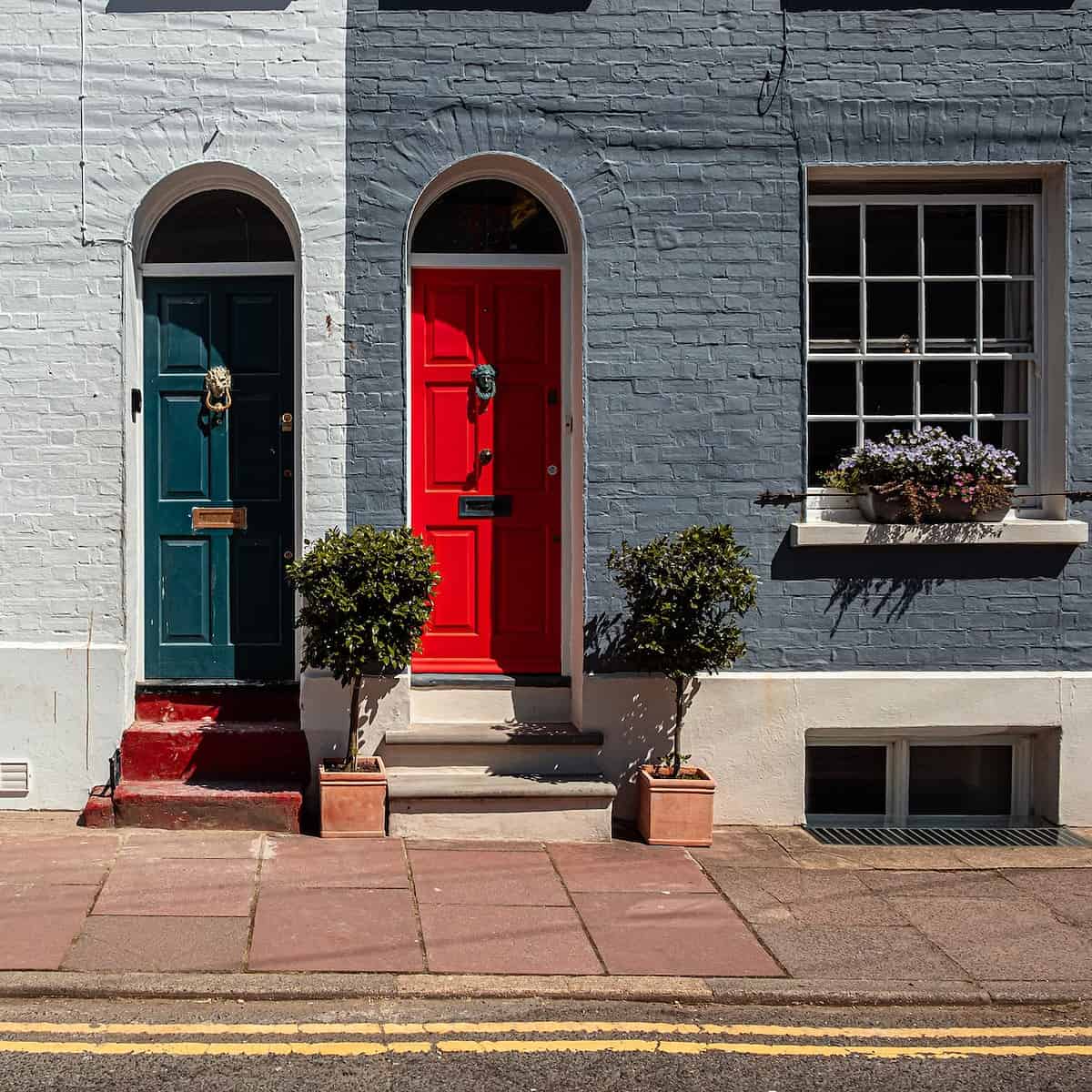
Renting in Brighton is more expensive than the English average. The average rent for a home in Brighton is £1,281 per month, higher than the UK average of £1014.
However, rental prices can vary dramatically depending on the property's location, size, and amenities.
To summarise, here's a quick overview of property prices and rental costs in Brighton:
- Average terrace house price: £616,981
- Average flat price: £350,573
- Average rent per month: £1,281
Remember these property prices and rent figures as you plan your move to Brighton. Knowing what to expect can help you set a realistic budget and choose a suitable area to live in.
Schools & education
In Brighton, there is a broad range of education choices available for you and your family. The city provides everything from primary and secondary schools to language schools, colleges and universities.
Primary schools
Brighton is home to numerous primary schools catering to its residents' diverse needs. Many of these schools offer a high-quality education to foster your child's development
There are four types of primary schools in the city:
- Community Schools: Controlled by Brighton & Hove City Council
- Church Voluntary Aided Schools: Follow the national curriculum, but choose their own syllabus for religious studies.
- Free Schools: Funded by the government but managed independently, not by the council
- Academies: Managed by a governing body that is independent of the council and can follow a different curriculum
Some popular primary schools include:
- Downs Junior School
- St Luke's Primary School
- Hangleton Primary School
- West Hove Infants School
- St Paul's CofE Primary School
Secondary schools
When it comes to secondary education, Brighton offers a variety of options for your child to explore. Well-regarded secondary schools in the area include
- Dorothy Stringer School
- Cardinal Newman
- Patcham High School
- Blatchington Mill
- Varndean School
- Hove Park School
Many of these schools boast high standards of achievement and strong reputations, so you can feel confident in your choice.
Private/independent schools in Brighton
Brighton also has some excellent independent fee-paying schools, including:
- Brighton College (Voted Times School of the Decade)
- Brighton Girls GDST (Girls aged 4-18 years)
- Rodean School (Girls 11-18 - Day and Full Boarding)
Language schools
Brighton is an ideal location if you or a family member requires language education.
The city hosts numerous language schools offering a wide range of English and other language courses.
Some popular language schools include:
Universities in Brighton
Brighton is home to two prominent universities: the University of Brighton and the University of Sussex.
These universities offer a broad selection of undergraduate and postgraduate courses, attracting students worldwide.
Boasting excellent research facilities and a vibrant student community, these institutions provide a high-quality higher education experience for those pursuing their academic goals.
Employment opportunities in Brighton
When moving to Brighton, you'll find a wide range of employment opportunities.
The city is known for its vibrant creative and digital sectors, which provide various job prospects for individuals in these fields.
Additionally, it is home to many retail and service businesses, adding further options for those seeking employment.
Restaurants and cafes
Brighton is well known for its diverse and independent dining scene, offering numerous restaurants and cafes for you to enjoy.
Brighton has something to suit your taste, whether you prefer a cosy cafe for a casual meal or an upscale restaurant for a special night out.
Check out Restaurants Brighton, which includes Cafes and Bars.
Nightlife
The city boasts a vibrant nightlife, ensuring that you will never have a dull evening. You'll find entertainment options from clubs and live music venues to pubs and bars to suit any preference.
Explore areas such as the famous Kemptown neighbourhood, where you'll find numerous bars, clubs, and live music events for a fantastic night out.
Check out Design My Night to find some of the best clubs in Brighton.
Shopping and leisure
Shopping in Brighton is a pleasure, with several shopping centres and independent retail outlets like Churchill Square.
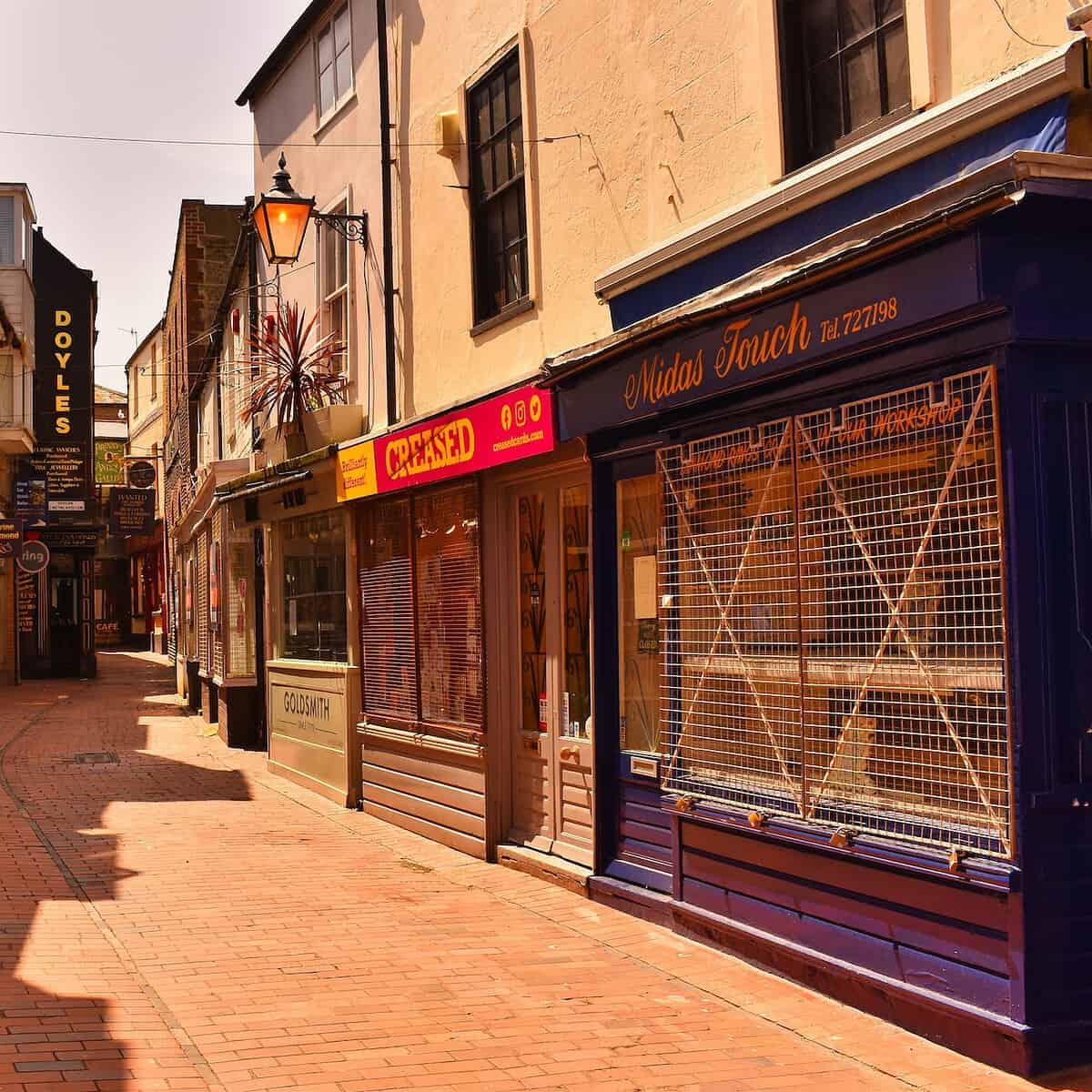
Whether you're in search of high-street brands or unique boutiques, you'll find everything you want in the city.
Furthermore, Brighton provides ample leisure options with its theatre scene, live music venues, and recreational activities along the seafront.
LGBT community
Brighton is often referred to as the unofficial LGBT capital of the UK, due to its distinctive and diverse LGBT community.
The city provides a welcoming and inclusive environment for all, with numerous LGBT-friendly venues, community spaces, and events, including the annual Brighton Pride festival, which is one of the largest in the country.
Security and crime rates
In terms of security, Brighton generally has a lower violent crime rate compared to larger cities like London or Southampton.
However, as with any urban area, it's essential to remain vigilant and aware of your surroundings, particularly when out late at night.
Arts and culture
When moving to Brighton, you'll become immersed in a city with a rich arts and culture scene, boasting many galleries, live music venues, theatres, and festivals to keep you entertained.
Galleries
Brighton is home to an array of galleries showcasing both local and international artists. You can explore contemporary art, photography, and various exhibitions throughout the city.
Be sure to visit some of the well-known galleries, such as the Brighton Museum and Art Gallery, which houses a diverse art collection.
Theatres
The city's theatres offer a wide range of performances, from West End productions to independent plays.
Some popular venues to check out include the Brighton Dome, a multi-arts venue that features theatre, dance, and comedy, as well as the Theatre Royal, which hosts a diverse programme of touring productions.
Live music venues
If you're a fan of live music, you'll be spoilt for choice when it comes to venues in Brighton.
The city thrives on its eclectic music scene, making it easy for you to discover both emerging and established artists.
Make your way to some of the top live music venues, such as the Brighton Centre, Green Door Store, and Concorde 2.
Festivals and events
Brighton hosts a variety of annual festivals and events that showcase its rich arts and culture sector.
Don't miss out on The Great Escape, a festival for new music or the Brighton Festival, which celebrates art, theatre, and dance.
Visit the iconic Palace Pier to witness its remarkable history while taking part in various seaside activities.
Overall, the abundance of arts, galleries, live music, and vibrant nightlife are sure to make your life in Brighton both enriching and entertaining.
Other lifestyle benefits
Moving to and living in Brighton offers numerous lifestyle benefits, including:
The beach and seafront
One of the most iconic features of Brighton is its beach and seafront. The pebble beach stretches from Hove to Brighton Marina, offering picturesque views and a lively atmosphere.
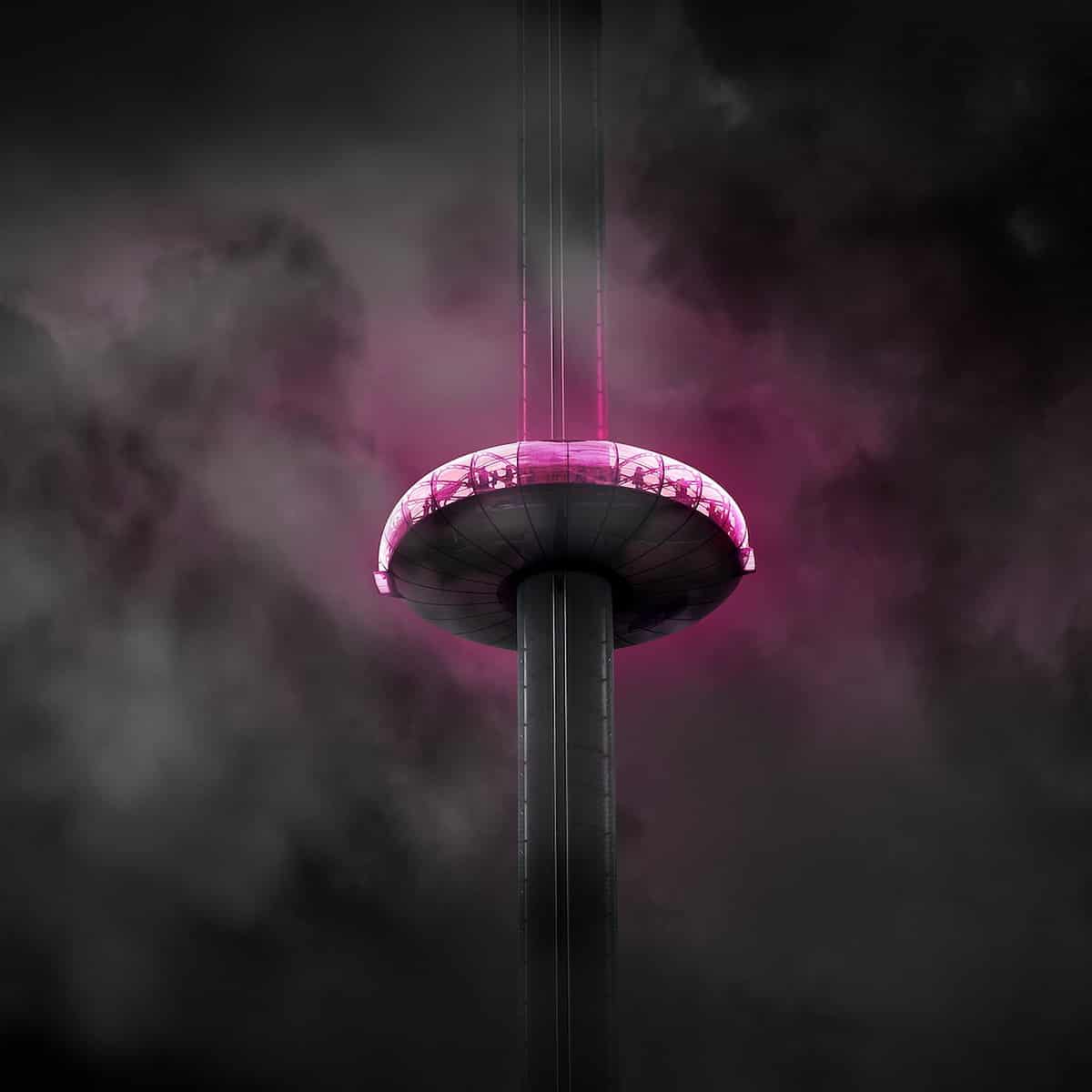
Regency architecture
Brighton's history as a resort destination dates back to the Regency era when Prince Regent (later King George IV) constructed the stunning Royal Pavilion and Garden.
Today, the city still sports numerous Regency-style buildings, reflecting the opulence of that era. Exploring the architectural heritage of Brighton is a unique and rewarding experience.
The South Downs
Another great thing about living in Brighton is its proximity to the beautiful South Downs.
Wander into the rolling hills, discover picturesque villages, and enjoy outdoor activities such as walking, cycling, or picnicking. The South Downs National Park also provides a perfect escape from the urban setting whenever you wish to recharge in nature.
Final thoughts on living in Brighton
Living in Brighton can deliver a distinctive and vibrant lifestyle change. With a more relaxed pace of life compared to London and a thriving creative scene, your time in this seaside city will be one to remember.
When considering accommodation, remember that rent in Brighton is generally cheaper than in London but still higher than in many of the nearby towns.
As a Brighton resident, you'll be immersed in the city's dynamic culture, celebrated for its diversity, arts, creativity, independent businesses and growing LGBTQ+ community.
Other popular locations to consider:
- Living In London: Is It Worth The Cost?
- Top 10 Best Places To Live In Bristol And Nearby
- The Pros And Cons Of Living In Birmingham, UK
- Moving To And Living In Aberdeen
You might find useful:
- Living In The UK – the absolute relocation guide: where to live, how much it costs, the pros and cons, healthcare, and other facts you need to know.
- The Best Places To Live In Scotland – a detailed guide to Scotland’s most popular locations: from quiet and rural to vibrant and urban, discover the best places to live in this stunning country
- The 15 Best Places To Live In England – find the best places to live, work, raise a family, and retire in England.
- The 15 Best Places To Live In Wales – discover the best locations Wales has to offer: from the wonderful coastal towns and villages to the unique destinations in the heart of Wales.
Secure Peace of Mind with Best-Value International Health Coverage
International Citizens Insurance provide free, no-obligation quotes from the leading international health insurance providers with plans tailored to meet your needs. Trusted by thousands of expats worldwide.



